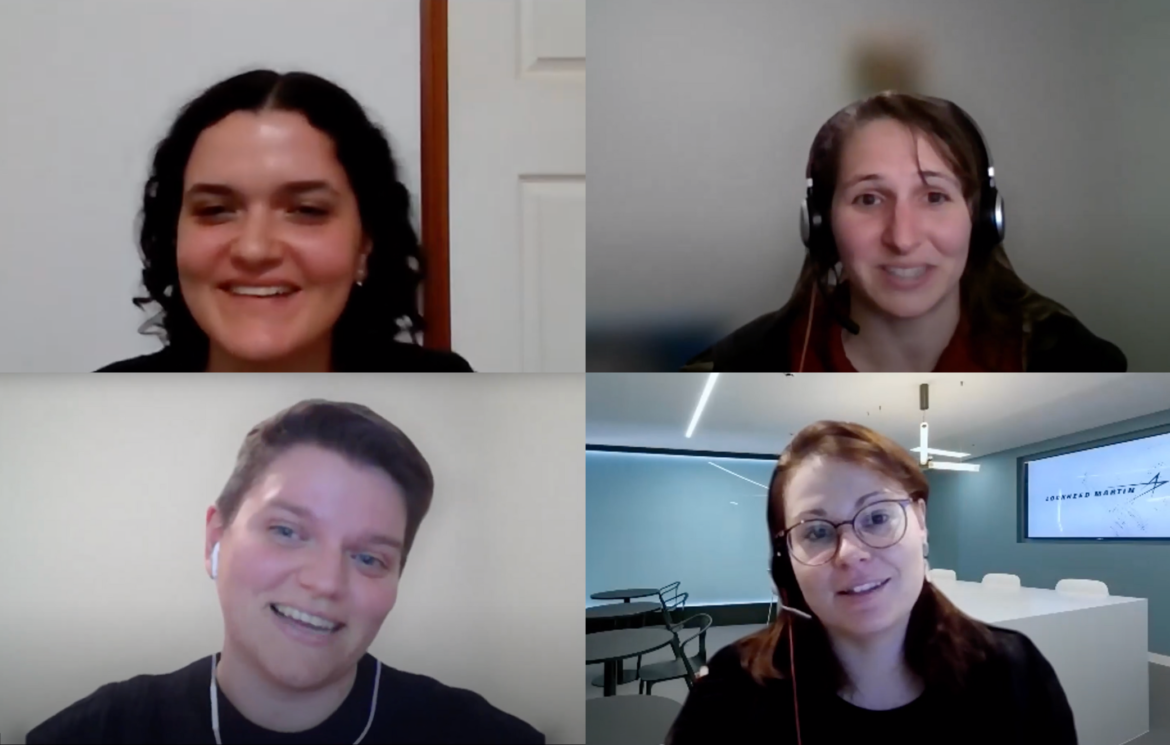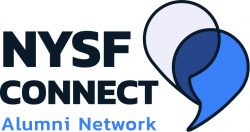While many of us have heard of engineering, how many actually know what 'an engineer' does? The “E” is an incredibly important part of STEM (science, technology, engineering, and mathematics), and offers fantastic career prospects, with high demand and growth projected for the sector. But it’s difficult to decide on a career you don’t know much about – so we brought in some experts to tell us all about it in our latest NYSF Connect webinar!
We were delighted to be joined by three engineers with incredible insight into what engineering is, how to get into it, and what life is like as an engineer. NYSFers were joined by Keren Reynolds, the Integrated Systems and Additive Manufacturing Lead at Lockheed Martin Australia’s STELaRLab, Elanor Kloester, the Project Manager, R&D Governance at CSL, and Tayesha Papa, Engineer – Projects, Systems, and Coordination at BAE Systems Australia (via our NYSF partner organisation: the Naval Shipbuilding College). Our host for the evening was NYSF alumna and budding engineer, Isabella Papadimitriou, and we were privileged to have an appearance from our CEO, Dr Melanie Bagg, who gave a special welcome to the session!

There's an enormous number of specialisations within engineering, which could be daunting to someone trying to plan for their future. We wanted to know: is it easy to switch between fields once you have an engineering degree? Tayesha responded with a resounding “YES!” and went on to elaborate: “The number of transferrable skills wicslthin engineering is so vast, and you can really apply your problem-solving skills to any field you want.” The remaining panellists agreed and explained how an engineering education is about developing a new way of thinking and honing your problem-solving skills and can give you a fantastic platform to easily move into whatever area you find most interesting!
Speaking of finding things interesting... Elanor had some fantastic advice for networking and finding your path and opportunities: “Be interested! If you’re interested, you’ll be interesting.”
Elanor explained that you should approach networking out of interest in the people and subjects, rather than looking for what benefits you might gain: “If you’re going because you’re genuinely interested in the industry and you want to meet people and understand what they do, you’re going to grow in that space and you’ll have things of value that you can bring to that space - and people will recognise that.”
When asked what one single skill was most important to develop as an engineer, the panellists mentioned several transferrable, rather than job-specific, skills. Keren said, “Openness is a key skill that I like to see from people that I employ, from myself, and from my managers and people that inspire me in the sector. Openness to take on a new challenge… being open to changing course if something isn’t going right, being open to working with different groups and communities.” Tayesha cited a willingness to learn, while Elanor said that communication was her top pick, as all the engineering skills in the world won’t solve problems if you can’t communicate with others.
As an NYSF alumna, it was amazing to see Tayesha's success in her current role and her STEM journey. Tayesha shared how life-changing the NYSF experience was for her: “Literally, the NYSF is the only reason I’m in the job I’m in right now!” Meeting a friend through the NYSF influenced her to study engineering, introduced her to a new circle of friends, got her involved in outreach for women in STEM, and so much more.
The panellists concluded the evening with advice for young people considering a career in engineering:
“Just do it! Just see what it’s like – if you’re considering it, just give it a go! There’s no harm in getting an engineering degree and then maybe deciding you don’t want to be an engineer… an engineering degree is going to set you up so well because it’s all about the way you think and the way you solve problems and approach things.” - Tayesha
“Try to be flexible as you go through your career. It’s sometimes a lot of twists and turns, and it’s certainly a lot less linear and a lot less obvious which direction is best… Be kind to yourself; it’s not always easy, but just try things and see how you like them.” - Elanor
“Engineers I think have more fun in life! … I feel like engineers are generally happy because they have a great work-life balance; we can negotiate better jobs, better pay, and we can chase different projects.” - Keren
The conversation was fascinating and shone a bright light on engineering pathways , and we are very grateful to our panellists for offering their insights and wisdom to our passionate NYSF alumni. We would also like to thank our partner organisations, Lockheed Martin Australia, CSL, and the Naval Shipbuilding College, for supporting the session and helping us to continue offering STEM outreach and education to young people across Australia.
